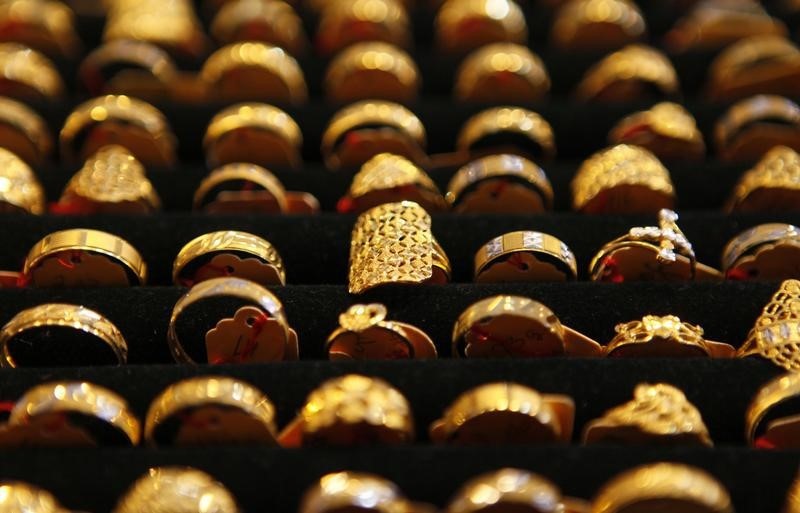By Henning Gloystein and Josephine Mason
SINGAPORE/BEIJING (Reuters) - Gold and oil started slightly up in nervous early trading in Asia on Monday following the deadly attacks on Paris, but commodities markets overall are likely to remain weak on poor fundamentals.
U.S. gold futures
Investors often turn to gold as a safe haven in times of heightened risk and turnover in the most-active December Comex gold futures was unusually high at the open.
In the first ten minutes of trade, just under 3,000 lots changed hands, which is equivalent to $316 million.
That's almost ten times the 300-lot average for the opening ten minutes over the past two months, according to Reuters calculations.
Activity in crude oil futures was similar, with prices edging up slightly but remaining near August lows in high-volume trading.
Front-month U.S. crude futures (CLc1) were trading at $40.89 a barrel at 0004 GMT, up 15 cents from their last close.
Internationally traded Brent (LCOc1) was at $44.62 a barrel, up 15 cents.
"Oil prices are likely to remain under pressure short-term," ANZ bank said in a morning note on Monday.
Commodity markets have been under pressure for most of the year as high production by energy and mining companies clashes with increasingly sluggish demand due to an economic slowdown in Asia, particularly in China but also Japan, which slipped back into recession in the third quarter.
Commodity trading mirrored nervous financial markets, where U.S. stock futures were sharply lower and the euro skidded in early Asian trading on Monday in the wake of Friday's attacks in France, with stocks expected to take their cue from poor investor appetite for risk after the assault and Wall Street's steep losses.
The euro fell to a three-month low against the British pound (EURGBP=D4) on Monday as the single currency came under pressure after the deadly attacks in Paris late last week.

The euro fell to as low as 70.315 pence (EURGBP=D4), its lowest since mid-August. The euro also fell 0.6 percent against the dollar to $1.0710